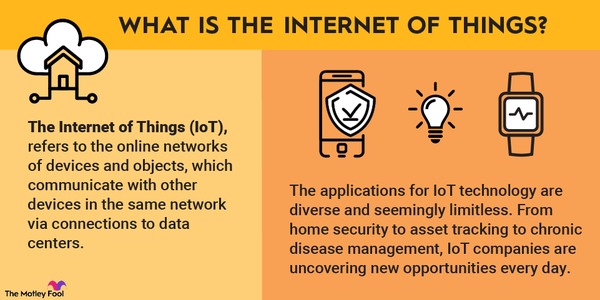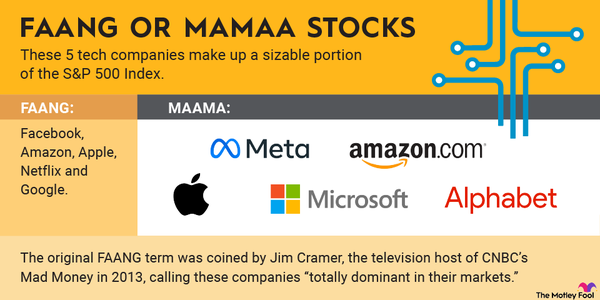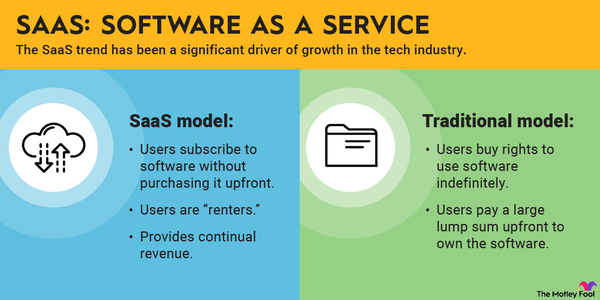
The gig economy is rapidly creating jobs while providing easier access to services for businesses and consumers. If you’ve hailed a ride on Uber (UBER -2.94%), ordered dinner on DoorDash (NYSE:DASH), or commissioned a portrait of your cat on Fiverr (FVRR -0.96%) (that’s normal, right?), you’ve participated in the gig economy.
Transaction volume in the gig economy is expected to climb more than 17% annually, reaching $455 billion by 2023, according to a study from Mastercard. The COVID-19 pandemic may have accelerated that growth as more people turned to freelance work to replace or supplement their income in 2020.
If you’re interested in investing in the gig economy, here are five stocks to consider:
Top Gig Economy Stocks
| Company | Market Capitalization | Description |
|---|---|---|
| Uber (NYSE:UBER) | $67.8 billion | A company offering rides, restaurant delivery, grocery delivery, and other services. |
| Lyft (NASDAQ:LYFT) | $3.9 billion | A company offering rides, bike-sharing, scooter-sharing, and food delivery. |
| DoorDash (NYSE:DASH) | $23.6 billion | A company providing restaurant and grocery delivery. |
| Airbnb (NASDAQ:ABNB) | $75.2 billion | A hospitality business offering vacation rentals. |
| Fiverr (NYSE:FVRR) | $1.5 billion | A freelance marketplace for professionals. |
1. Uber
Uber specializes in getting things from point A to point B -- people, food, and household items. Drivers use their own vehicles to deliver people, restaurant orders, or grocery items to their destinations.
Like most other gig economy stocks, Uber’s value is its network, which consists of drivers, riders, restaurants, and stores. It’s able to easily connect drivers to gigs and restaurants to diners, which earns it a commission. Uber distributes most of its customer payments to drivers, restaurants, and stores, keeping some for itself.
Uber currently faces a challenge with some governments looking to define drivers as employees instead of freelancers -- a challenge faced throughout the industry. Maintaining freelancer status means Uber doesn’t have to provide health insurance or other benefits, and it can avoid managing payrolls across its territories.
The pandemic hit Uber’s ride-sharing business hard, as people stopped traveling and nightlife shut down in many cities. Its UberEats business, however, made up for the decline, and the shift to more meal delivery may be permanent even as consumers begin to feel comfortable going out again.
2. Lyft
Lyft is the second-largest ride-sharing business in the U.S. It operates under the same business model as Uber, but Lyft focuses on getting people to their destinations. It also operates a bike and scooter share.
Lyft operates in the same fashion as Uber and other gig economy businesses. It provides a network of riders and drivers and makes it easy for them to connect with each other. In exchange for the service, it takes a commission on every ride.
The pandemic was especially tough on Lyft. The number of active riders fell almost 60% at the start of the pandemic, and the numbers hadn’t fully recovered as of mid-2021. Even so, Lyft has been able to improve profitability, and revenue per rider remains relatively stable at close to its pre-pandemic levels.
3. DoorDash
DoorDash is the leading food delivery business in the U.S. It connects restaurants to customers and delivery drivers, enabling restaurants to easily offer delivery service and find additional customers looking for a meal. DoorDash recently expanded into grocery and alcohol delivery as well, capitalizing on its network of drivers.
The pandemic was a boon to DoorDash’s business as more consumers looked to the convenience of restaurant delivery for dinner at a time when many options were closed to indoor diners. Revenue growth surged to more than 200% from the second quarter of 2020 through the first quarter of 2021. DoorDash is maintaining that momentum as it laps the surge in orders it saw at the height of the pandemic.

4. Airbnb
Airbnb gives homeowners a chance to earn extra income by listing their home or a room as a short-term rental. It’s quickly grown in popularity since an Airbnb can provide greater value for the customer than a typical hotel stay. Airbnb also allows hosts to offer “experiences” to travelers such as a cooking class or a personalized tour. Airbnb collects a service fee for each booking made through its platform.
Like other travel-related businesses, Airbnb suffered mightily during the depths of the pandemic. It adapted the best it could, with some hosts offering “work from home office space,” while others positioned their rentals as a COVID-safe alternative to a busy hotel. As of mid-2021, Airbnb’s revenue had fully recovered to 2019 levels.
Related investing topics
5. Fiverr
Fiverr is a freelance marketplace where individuals and businesses can hire someone to design their website, revamp their logo, produce a video, or perform numerous other tasks. Job postings start for as little as $5 (hence the name). Fiverr takes a commission on each sale for freelancers on the marketplace. It also offers several subscription options for both buyers and sellers on the platform.
Freelancers can make a full-time income by selling their services on Fiverr. Jobs might start at $5, but Fiverr has become a respected marketplace, and sellers can charge a premium for premium services. Fiverr is making a push to bring more professionals onto the platform, partnering with Salesforce (CRM -0.57%) and Wix (WIX -0.3%) to promote certified customer relationship management (CRM) administrators and web designers.
Fiverr is growing quickly, expanding into new gigs and geographies. It’s bringing in more buyers to the platform, and those buyers are spending more on average.


























